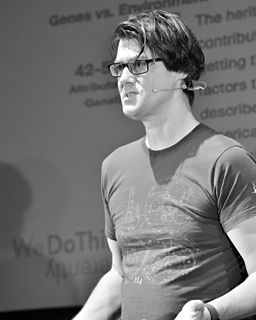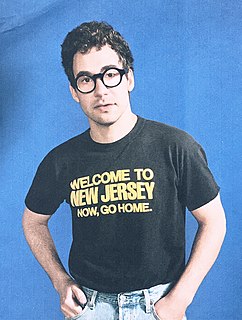A Quote by Arturo Pérez-Reverte
What about the future?" "We'll talk about the future when it gets here.
Related Quotes
There are two kinds of people: one who goes on thinking about the future, not bothering about the present at all. That future is not going to come, that future is just a fool's imagination. I don't think about the future. I am a totally different kind of person. I don't think about the future at all, it is irrelevant.
So one predicts the future as much as one is cause. The future isn't a pattern laid out to abuse and bully you. The future is a beautiful playground that nobody happens to be combining. You talk about virgin territory - the most virgin territory there is, is the future. You can do anything you want with it. Nobody is doing anything with it.
We spend our whole lives worrying about the future, planning for the future, trying to predict the future, as if figuring it out will cushion the blow. But the future is always changing. The future is the home of our deepest fears and wildest hopes. But one thing is certain when it finally reveals itself. The future is never the way we imagined it.
Similarly, knowledge of the future was incompatible with free will. What made it possible for me to exercise freedom of choice also made it impossible for me to know the future. Conversely, now that I know the future, I would never act contrary to that future, including telling others what I know: those who know the future don't talk about it. Those who've read the Book of Ages never admit to it.
As soon as a man recognizes that he has drifted into age, he gets reminiscent. He wants to talk and talk; and not about the present or the future, but about his old times. For there is where the pathos of his life lies - and the charm of it. The pathos of it is there because it was opulent with treasures that are gone, and the charm of it is in casting them up from the musty ledgers and remembering how rich and gracious they were.







































